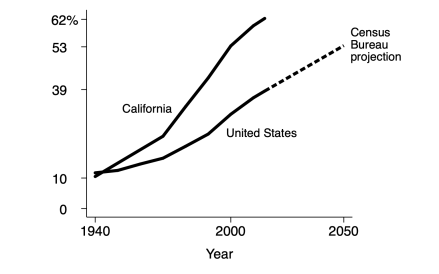The following article by Ruy Teixeira, author of The Optimistic Leftist and other works of political analysis, is cross-posted from his blog:
The excellent Lane Kenworthy makes this case as well–better!–than I ever have in a section of an essay he put up on his website on “Voters, groups, parties, and elections” The whole essay is great, extremely crisp and extremely fair to the various literatures he cites. So you should really read the whole thing, but here is a taste from his section on “The coming Democratic majority”.
“In the aftermath of the 2016 election, with Republicans holding the presidency and a majority in both houses of congress, it was easy to dismiss the notion of a coming Democratic majority. But if anything, the case for this projection is stronger now than when Judis and Teixeira first offered it.
Recent Republican parity (and occasional majority status) in national elections is largely a function of the country’s antiquated electoral rules. The Democratic presidential candidate has gotten a majority of the popular vote in six of the past seven elections, but twice the electoral college has handed the presidency to the Republican instead. Democrats frequently get more votes than Republicans in Senate elections, but Republicans remain competitive because they have a hold on a number of small conservative states, each of which gets the same number of senate seats as large progressive states such as California and New York.
As a country gets richer, its citizens tend to want more insurance against loss, greater fairness and opportunity for the less-advantaged, and more individual freedom. The first of these leads to support for more generous and expansive government social programs. The second and third produce growing progressivism on social and cultural issues. Each of these shifts favors the Democratic Party….
[M]ost Americans, even those who dislike the idea of big government or who call themselves “conservative,” favor much of what government actually does. And quite a few would prefer that government do more.What about social and cultural issues?…[L]ow-income Republicans differ from high-income Republicans in their degree of economic progressivism, with quite a few low-income Republicans just as progressive as Democrats. For Republicans, cultural conservatism has become just as important as limited government, if not more so.
But cultural conservatism is on the decline. This is what we would expect, given the shift toward postmaterialist value orientations. And it is what we observe in the public opinion survey data. Every noteworthy cultural shift that has occurred over the past half century — on gender roles, families, racial and ethnic inclusion, religion, and more — has been away from traditionalism and in the direction of greater fairness and individual liberty…..
The clearest signal that the Republican Party faces diminishing electoral support comes from the views and party preferences of younger Americans. Recall that value orientations and party preferences tend to be formed around age 20 and stick throughout the life course. “Millennials” and members of “generation Z” tend to be considerably more progressive on social and cultural issues than preceding generations. And younger cohorts are more likely than their predecessors to identify as Democrats and much more likely to vote for Democrats.”
Kenworthy then goes on to discuss the issue of racial anxiety–its origins and whether it has enough staying power to keep Republicans from moving to the center indefinitely. Again, read the whole thing if you have time.

Figure 16. Population that is nonwhite and/or Hispanic
Share of the total population. The dashed portion of the line for the US as a whole is a projection. Data source: Census Bureau.




I am unfamiliar with the term “post materialist value orientations.” Can you define it for me?